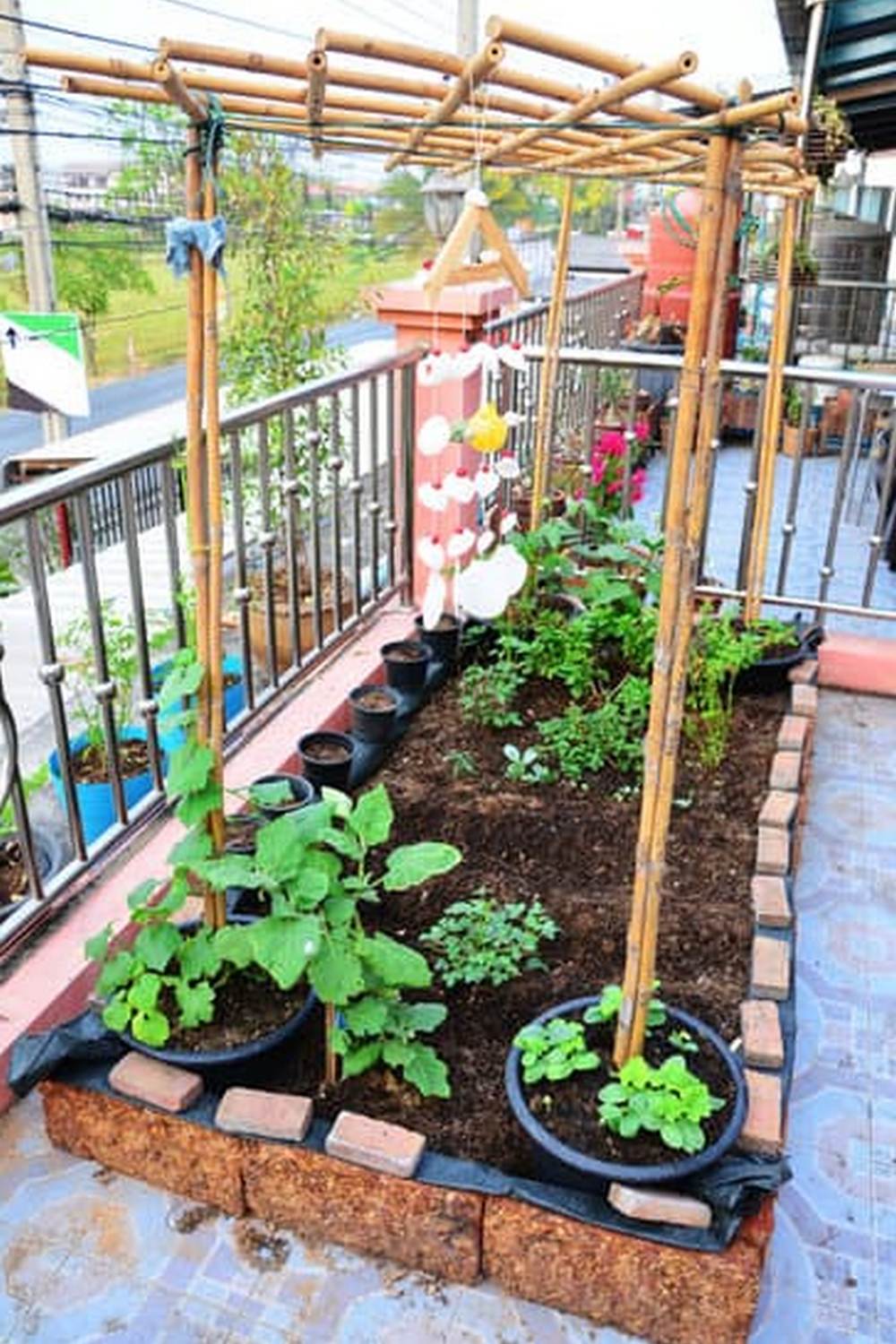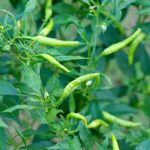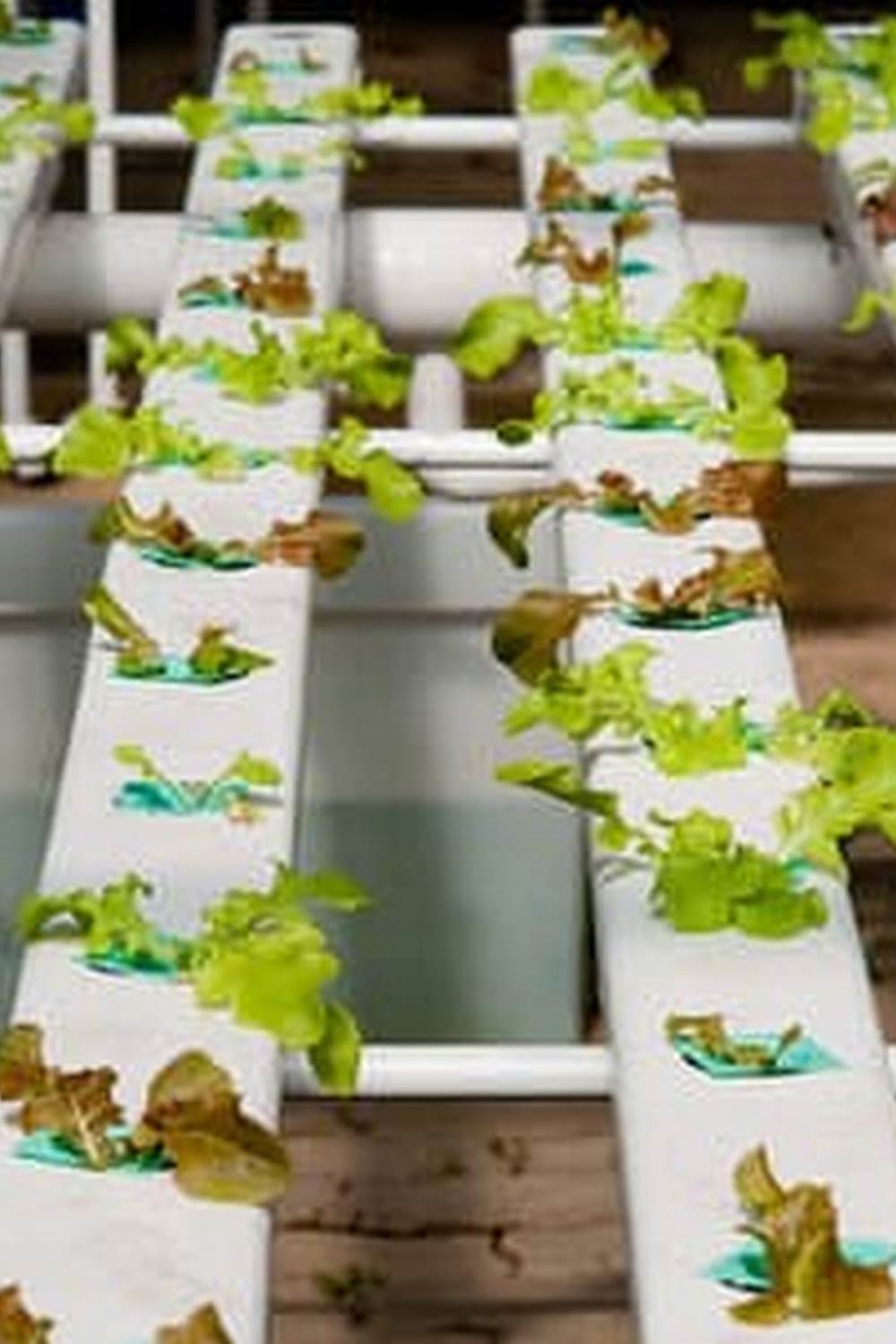Are you interested in starting a vegetable garden in Middle Tennessee? Vegetable gardening in Middle Tennessee offers a unique set of challenges and opportunities due to the region’s climate and soil conditions. Whether you’re a seasoned gardener or new to the world of gardening, understanding the specific needs of vegetable gardening in Middle Tennessee can help you cultivate a successful and abundant garden.
Middle Tennessee provides a favorable environment for growing a variety of vegetables, but it’s important to choose the right plants that will thrive in this region. Understanding the local climate, soil conditions, and best practices for vegetable gardening is essential for those looking to start their own home garden. With proper knowledge and preparation, you can enjoy a bountiful harvest of fresh, nutritious vegetables right from your backyard.
In this article, we’ll explore the ins and outs of vegetable gardening in Middle Tennessee, including ideal vegetables to grow, climate and soil conditions, tips for starting a successful garden, best practices for maintenance, pest and disease management techniques, harvesting your produce, as well as community resources and support available for vegetable gardening enthusiasts in Middle Tennessee.
Whether you’re looking to grow tomatoes, peppers, squash or any other delicious vegetables, this guide will provide valuable insights into cultivating a thriving garden in Middle Tennessee.
Ideal Vegetables to Grow in Middle Tennessee
When it comes to vegetable gardening in Middle Tennessee, there are several ideal vegetables that thrive in the region’s climate and soil conditions. Whether you’re a seasoned gardener or just starting out, it’s important to choose vegetables that are well-suited for the area. Here are some ideal vegetables to consider growing in your Middle Tennessee garden:
- Tomatoes: With the proper care and support, tomatoes flourish in Middle Tennessee’s warm and sunny summers.
- Bell Peppers: These heat-loving vegetables do well in the region’s long growing season, producing an abundance of crisp and colorful peppers.
- Zucchini: Known for their prolific production, zucchinis are perfect for Middle Tennessee gardens, thriving in the area’s fertile soil.
- Green Beans: Whether bush or pole varieties, green beans grow exceptionally well in the region and offer a bountiful harvest for gardeners.
In addition to these vegetables, Middle Tennessee is also conducive to growing leafy greens like lettuce and spinach, as well as root vegetables such as carrots and radishes. When selecting which vegetables to grow in your garden, it’s essential to consider the specific microclimate of your location within Middle Tennessee.
Planting a variety of these ideal vegetables will not only provide you with a diverse and nutritious harvest but also contribute to the overall success of your vegetable garden in Middle Tennessee. With the right care and attention, you can enjoy a plentiful yield of fresh produce throughout the growing season.
Climate and Soil Conditions in Middle Tennessee for Vegetable Gardening
Middle Tennessee offers a favorable climate and soil conditions for vegetable gardening, making it an ideal location for individuals interested in growing their own produce. The region experiences a humid subtropical climate, with hot summers and mild winters, providing ample opportunity for a wide variety of vegetables to thrive. Additionally, Middle Tennessee boasts fertile soil, particularly in the Central Basin area, which is rich in nutrients and conducive to plant growth.
The climate in Middle Tennessee lends itself well to the cultivation of a diverse range of vegetables. Warm-season crops such as tomatoes, peppers, squash, and okra are well-suited to the long, hot summers, while cool-season crops like lettuce, spinach, carrots, and peas flourish during the milder temperatures of spring and fall. Understanding the seasonal preferences of different vegetables is crucial for successful gardening in Middle Tennessee.
In addition to the favorable climate, Middle Tennessee’s soil conditions contribute to the success of vegetable gardening in the region. The presence of loamy soils with good drainage supports healthy root development and nutrient uptake by plants. It is important for gardeners to conduct a soil analysis to assess its composition and pH levels before planting their vegetable garden.
By understanding these factors, individuals can make informed decisions about amendments needed to optimize soil fertility for their specific crops. Overall, the combination of suitable climate and fertile soil makes vegetable gardening in Middle Tennessee an enjoyable pursuit with bountiful results.
Tips for Starting a Successful Vegetable Garden in Middle Tennessee
Starting a successful vegetable garden in Middle Tennessee can be a rewarding experience, but it also requires careful planning and consideration of the region’s unique climate and soil conditions. With the right approach, you can create a thriving garden that provides you with an abundance of fresh, flavorful produce.
Choose the Right Location
One of the first steps in starting a vegetable garden in Middle Tennessee is selecting the right location for your plants. Look for an area that receives at least 6-8 hours of sunlight per day and has well-draining soil. Consider creating raised beds if your soil is heavy or clay-like, as this can improve drainage and provide better growing conditions for your vegetables.
Prepare Your Soil
Middle Tennessee is known for its diverse range of soil types, from sandy loam to clay. To prepare your soil for planting, consider getting a soil test to determine its pH levels and nutrient content. Based on the results, you can amend your soil with organic matter like compost or aged manure to improve its structure and fertility.
Selecting the Right Vegetables
When it comes to vegetable gardening in Middle Tennessee, it’s important to choose plant varieties that are well-suited to the region’s climate. Opt for heat-tolerant vegetables such as tomatoes, peppers, squash, and okra, which thrive in the warm summers common in Middle Tennessee. Additionally, cool-season crops like lettuce, spinach, and kale are ideal for planting in spring or fall when temperatures are milder.
By following these tips for starting a successful vegetable garden in Middle Tennessee, you can set yourself up for a bountiful harvest of fresh produce that will inspire you to continue nurturing your love for vegetable gardening in this region.
Best Practices for Maintaining a Vegetable Garden in Middle Tennessee
Once you have successfully started your vegetable garden in Middle Tennessee, it’s important to maintain it properly to ensure a bountiful harvest. Here are some best practices for maintaining a vegetable garden in this region:
- Regular watering: Middle Tennessee can experience hot and dry periods, so it is essential to water your vegetable garden regularly. Be sure to water deeply to encourage strong root growth.
- Weed control: Keep your garden free of weeds that can compete with your vegetables for nutrients and water. Regularly remove any weeds that sprout up in your garden.
- Fertilization: Use organic fertilizers to provide essential nutrients to your vegetables. You can also add compost to improve the soil structure and fertility.
In addition, it’s crucial to keep an eye on the health of your plants and address any issues promptly. Look out for signs of disease or pest infestations and take appropriate measures to manage them.
Pest and Disease Management in Middle Tennessee
Dealing with pests and diseases is a significant aspect of maintaining a successful vegetable garden in Middle Tennessee. Here are some tips for managing these challenges:
- Identify the problem: Learn how to identify common pests and diseases that affect vegetables in Middle Tennessee. Keep an eye out for symptoms such as leaf discoloration, wilting, or unusual spots.
- Implement preventive measures: Practice crop rotation, use row covers, and maintain good garden hygiene to prevent pest infestations and disease outbreaks.
- Consider organic solutions: Utilize organic pest control methods such as neem oil, insecticidal soaps, and companion planting techniques to manage pests without harmful chemicals.
By staying proactive with maintenance tasks and being vigilant about pest and disease management, you can enjoy a thriving vegetable garden in Middle Tennessee.
Harvesting Your Homegrown Vegetables
One of the most rewarding aspects of maintaining a vegetable garden in Middle Tennessee is harvesting the fruits (and vegetables.) of your labor. When it comes time for harvest, be sure to pick your vegetables at their peak ripeness for the best flavor and nutritional content. Additionally, regularly harvesting encourages continuous production from many plants such as tomatoes, peppers, cucumbers, beans, and more.
Pest and Disease Management for Vegetable Gardens in Middle Tennessee
Preventative Measures
One of the most important aspects of maintaining a successful vegetable garden in Middle Tennessee is managing pests and diseases. To prevent infestations, it’s crucial to practice good garden hygiene. This includes regularly removing any dead or diseased plants, keeping the garden free of weeds, and rotating crops to prevent the build-up of pests and diseases in the soil.
Natural Remedies
In addition to preventative measures, many gardeners in Middle Tennessee prefer to use natural remedies to manage pests and diseases in their vegetable gardens. For instance, using companion planting techniques can help repel certain pests, while attracting beneficial insects.
Introducing predator insects such as ladybugs or lacewings can also aid in controlling harmful insect populations. Additionally, organic pesticides derived from natural sources like neem oil or garlic can be effective at managing certain pests without harming beneficial insects or the environment.
Disease Control
When it comes to disease management in vegetable gardening in Middle Tennessee, it’s important to choose disease-resistant plant varieties whenever possible. Proper spacing between plants to ensure good air circulation can also help prevent the spread of diseases.
In case of an outbreak, removing affected plants promptly and avoiding overhead watering can minimize the spread of fungal diseases. Moreover, applying organic fungicides such as copper-based sprays can provide an effective means of controlling certain plant diseases without relying on harmful chemicals.
By implementing these pest and disease management strategies, gardeners in Middle Tennessee can increase their chances of enjoying a bountiful harvest from their vegetable gardens while minimizing the need for chemical interventions that may harm both human health and the environment.
Harvesting and Enjoying the Fruits of Your Labor in Middle Tennessee
After all the hard work of planting, tending, and caring for your vegetable garden in Middle Tennessee, it is finally time to reap the rewards of your labor. Harvesting your homegrown vegetables is an incredibly satisfying experience, as it allows you to enjoy the freshness and flavor of produce that you have personally nurtured.
Whether you are picking plump tomatoes, crisp cucumbers, or vibrant bell peppers, the feeling of satisfaction and pride that comes with harvesting from your own garden is truly unmatched.
When it comes to harvesting your vegetables in Middle Tennessee, timing is key. Different vegetables have different optimal harvest times, so it’s important to familiarize yourself with the specific harvest periods for each type of vegetable you have planted. For example, tomatoes should be picked when they are fully ripe and have a deep color and firm texture, while leafy greens like lettuce and spinach are best harvested before they bolt or become bitter.
Once you have harvested your vegetables, it’s time to enjoy the fruits of your labor. There’s no better way to savor the flavor and freshness of homegrown produce than by incorporating it into delicious meals for yourself and your family.
Whether you’re making a refreshing salad with freshly picked lettuce and cucumbers or using ripe tomatoes and peppers in a flavorful pasta sauce, there’s something special about eating food that has been grown right in your own backyard through vegetable gardening in Middle Tennessee.
Community Resources and Support for Vegetable Gardening in Middle Tennessee
Middle Tennessee offers a wealth of community resources and support for individuals interested in vegetable gardening. One such resource is the Middle Tennessee Vegetable Gardening Association, which provides a platform for local gardeners to connect, share knowledge, and learn from one another’s experiences.
The association holds regular meetings, workshops, and educational events on various topics related to vegetable gardening in Middle Tennessee. This is an excellent opportunity for both novice and experienced gardeners to network with like-minded individuals and gain valuable insights into successful gardening practices.
In addition to the Middle Tennessee Vegetable Gardening Association, there are also community gardens and urban farming initiatives throughout the region. These communal spaces provide individuals with limited access to land or resources the opportunity to participate in vegetable gardening.
Not only do these initiatives promote sustainable food production, but they also foster a sense of community and shared responsibility among participants. Community gardens often offer educational programs, volunteer opportunities, and access to gardening tools and resources, making them an invaluable asset for those interested in cultivating their own vegetables in Middle Tennessee.
Furthermore, many local nurseries, agricultural extension offices, and botanical gardens offer workshops, classes, and demonstrations specifically tailored to the unique climate and soil conditions of Middle Tennessee. These resources provide individuals with valuable information on plant selection, soil preparation, pest management strategies, and seasonal best practices for successful vegetable gardening in the region.
| Community Resources | Support Organizations |
|---|---|
| Middle Tennessee Vegetable Gardening Association | Local nurseries |
| Community Gardens | Agricultural extension offices |
| Urban farming initiatives | Botanical gardens |
Conclusion
In conclusion, vegetable gardening in Middle Tennessee offers a myriad of rewards for both seasoned gardeners and beginners alike. The region’s diverse climate and soil conditions create an ideal environment for growing a wide variety of vegetables, making it a rewarding endeavor for anyone looking to embark on their own gardening journey.
From the joy of planting seeds and watching them grow to the satisfaction of harvesting and enjoying your homegrown produce, the process of vegetable gardening in Middle Tennessee is truly rewarding.
Furthermore, the community support and resources available for vegetable gardening in Middle Tennessee make it an even more enriching experience. Whether it’s joining a local gardening club, attending workshops, or simply connecting with fellow gardeners in the area, there are ample opportunities to learn, share experiences, and receive support on your vegetable gardening journey. This sense of community adds an extra layer of reward to the already fulfilling experience of tending to a vegetable garden.
Ultimately, embracing the rewards of vegetable gardening in Middle Tennessee goes beyond the tangible benefits of fresh produce. It’s about connecting with nature, fostering a sense of accomplishment, and experiencing the simple joys that come with nurturing and cultivating your own piece of land. As more individuals embrace vegetable gardening in Middle Tennessee, they not only contribute to sustainable living but also enrich their lives in countless ways through this timeless practice.
Frequently Asked Questions
What Veggies Grow Best in Middle Tennessee?
In Middle Tennessee, veggies like tomatoes, peppers, squash, cucumbers, and green beans grow best. These warm-season crops thrive in the region’s hot summers and mild winters.
When Should I Plant My Garden in Middle Tennessee?
The best time to plant a garden in Middle Tennessee is typically late April through early May. This timing allows for the last frost to pass and provides the right warmth for seeds and transplants to take root and grow.
What Vegetables Grow Best in Zone 7?
In Zone 7, which includes Middle Tennessee, vegetables like tomatoes, peppers, eggplants, cucumbers, zucchini, and squash grow best. These plants can handle the region’s moderate winters and warm summers, making them well-suited for Zone 7 conditions.

If you’re looking to get into vegetable gardening, or are just looking for some tips on how to make your current garden better, then you’ve come to the right place! My name is Ethel and I have been gardening for years. In this blog, I’m going to share with you some of my best tips on how to create a successful vegetable garden.





